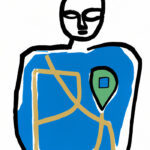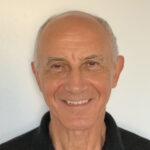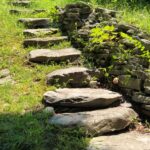
I teach Focusing as the mindful practice of using your embodied intelligence. That is, to be more in touch with your inner GPS, your bodily felt sense, and use it to navigate the challenges of life.
Focusing is based on a natural ability that we all have. The most effective way to learn and develop this skill is to practice it creatively, the same way that a child learns to walk by experimenting.
The course is a sandbox where you can experiment in a safe, fun, and stimulating way. It allows you to naturally deepen your practice.
The way I teach Focusing as embodied intelligence draws both from Gene Gendlin‘s original insights and from the neuroscience of interaction developed by Stephen Porges.
The course is meant for people who don’t know Focusing as well as experienced Focusers.
See highlights from a live Q&A about this course.
See below: Why this course? | Why this instructor? | Curriculum | What this course entails |.Dates | Cost | Registration |
Why this course?
Learning Focusing is very different from learning something neutral, such as how to use a new app on your phone. Focusing is not neutral. It’s a direct line to what is most vital in you.
So, we are not approaching this course as a way to learn techniques. We are approaching it as a way of deepening your sense of connection: to yourself (inner connection), and to others (interconnection).
Focusing is a deeply personal process. You get better at Focusing as you use it to get to know yourself better. As a by-product of this exploration, you will gain a deeper understanding of Focusing.
Each time you do Focusing, it changes you. What happens is what we call a felt shift.
Sometimes, the change is really big and hard to miss. Much of the time, it is very subtle. If you keep looking for really big changes, you may not notice the smaller ones. This is why you practice turning your attention inside, to sense the felt shift when it happens.
Something shifts as your organism responds to the situation, and you become aware of this shift. First, in a fuzzy way. And then, it comes into focus (which is why we call this Focusing).
So, every time you do Focusing, something changes. You experience insight as a visceral response, not just an abstract idea. You are moved to action. This is what makes Focusing action-oriented.
Over time, the practice of Focusing makes you more and more intimate with how you implicitly respond to life. Organically, you become more engaged with what life presents you with.
These changes are not just mental activity. They involve your whole organism. I like to describe Focusing as an Active Pause, or as action-oriented contemplation. The word “contemplation” captures the quality of being present with the situation and sensing how your whole organism is affected by it.
This course is for the general public. If you’re a therapist, you might also be interested in experiential courses that combine exploring the personal process of change with professional training.
Why this instructor?

Serge Prengel is a Focusing-oriented therapist. In addition to Focusing, he is also trained in Core Energetics and Somatic Experiencing.
Over the years, he has been exploring the similarities and differences between different approaches to better understand how change happens. He has conducted over 200 interviews with therapists, Focusers, researchers, and mindfulness practitioners.
Serge has led workshops in a variety of venues and conferences, such as Focusing, Somatic Experiencing, USABP, etc. He fosters a safe and stimulating space for groups to creatively explore our embodied process.
See bio for Serge Prengel.
Curriculum

This is an experiential course. You deepen your understanding of Focusing by using Focusing to explore the changes you can make in your life.
The course includes theory as well as practical information. It all comes organically as part of the process of exploration. This helps you put it into practice in a meaningful way, and it becomes part of you.
Over time, you will explore different ways of Focusing so that you can have a broader perspective on the process and develop a style that uniquely suits you.
The course also includes witnessing Focusing sessions and discussing what happens, as well as Focusing partnerships in breakout rooms.
As a participant, you are expected to participate in the breakout rooms as well as practice with a fellow participant between sessions.
What this course entails

The live part of this course consists of 4 online 1 1/2-hour sessions. The first 45 minutes of each session is a Q&A and experiential discussion of the lecture. The rest of the session is a process group where you explore clients’ situations and what this brings up for you.
Before each session, you have a video and/or reading about the Focusing theme of the session (plan on 30 minutes of study per session for the required material, and more for optional material).
Between sessions, you have a study group where you practice the skills discussed at the previous session. You will be assigned to a small group in the first session of the course.
This is a highly experiential course. You are not passively attending classes, you are learning by participating and being seen. It is expected that you will attend every session of the course. We understand that life can be unpredictable, and we allow for one missed session (which you must make up with class recordings).
Of course, in this course as in all others, we pay utmost attention to fostering a sense of safety and connection.
Dates

This 4-session course will be offered in 2024 (dates to be determined). If you’re interested, let us know through the contact form.